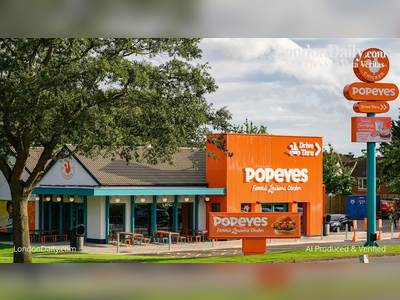
Reform UK’s Cornwall Surge Collapses Amid Resignations and Internal Turmoil
Six months after winning strongest showing on Cornwall Council, the party’s local group has fragmented and lost ground to rivals
In May the party secured twenty-eight seats on Cornwall Council, becoming the largest group after what was hailed as a major breakthrough in the county’s politics.
However, by mid-November its fall from prominence has been dramatic: resignations, suspensions and infighting have reduced its count to around twenty-three seats and dropped it behind the Liberal Democrats.
Key figures stepped away from the group in October.
The former deputy leader, Councillor Rowland O’Connor, left the party entirely citing a mismatch between local service delivery and the national agenda.
Days later the group’s leader, Councillor Rob Parsonage, also resigned, along with his wife and a number of other councillors, to form a new “Cornish Independent Non-aligned Group”.
Those departures signify major fractures in the local organisation.
Critics argue the developments expose the limits of the party’s capacity to govern beyond protest roles.
A former chair of the party’s Cornwall branch described the leader as lacking the experience to deliver, and expressed concern that many elected councillors were “paper candidates” ill-prepared for office.
The local Liberal Democrat leader remarked that the collapse was foreseeable, saying that those elected on a wave were now realising the practical demands of councillor work.
Reform UK dismissed claims of national control over local councillors and insisted that its representatives retained autonomy.
In a statement they reaffirmed the platform on which they were elected — opposing net-zero mandates and prioritising local services — and rejected allegations of enforced alignment to central policy.
The newly appointed group leadership in Cornwall, led by Councillor Paul Ashton, sought to steady the ship but acknowledged that rebuilding cohesion would take time.
Observers note that the Cornwall case follows a pattern: the party’s strong local-election performance across England has been increasingly tested by governance demands, candidate turnover and internal discipline.
As the Cornwall story unfolds, it highlights the difficulties of transforming electoral momentum into stable local government.
However, by mid-November its fall from prominence has been dramatic: resignations, suspensions and infighting have reduced its count to around twenty-three seats and dropped it behind the Liberal Democrats.
Key figures stepped away from the group in October.
The former deputy leader, Councillor Rowland O’Connor, left the party entirely citing a mismatch between local service delivery and the national agenda.
Days later the group’s leader, Councillor Rob Parsonage, also resigned, along with his wife and a number of other councillors, to form a new “Cornish Independent Non-aligned Group”.
Those departures signify major fractures in the local organisation.
Critics argue the developments expose the limits of the party’s capacity to govern beyond protest roles.
A former chair of the party’s Cornwall branch described the leader as lacking the experience to deliver, and expressed concern that many elected councillors were “paper candidates” ill-prepared for office.
The local Liberal Democrat leader remarked that the collapse was foreseeable, saying that those elected on a wave were now realising the practical demands of councillor work.
Reform UK dismissed claims of national control over local councillors and insisted that its representatives retained autonomy.
In a statement they reaffirmed the platform on which they were elected — opposing net-zero mandates and prioritising local services — and rejected allegations of enforced alignment to central policy.
The newly appointed group leadership in Cornwall, led by Councillor Paul Ashton, sought to steady the ship but acknowledged that rebuilding cohesion would take time.
Observers note that the Cornwall case follows a pattern: the party’s strong local-election performance across England has been increasingly tested by governance demands, candidate turnover and internal discipline.
As the Cornwall story unfolds, it highlights the difficulties of transforming electoral momentum into stable local government.









